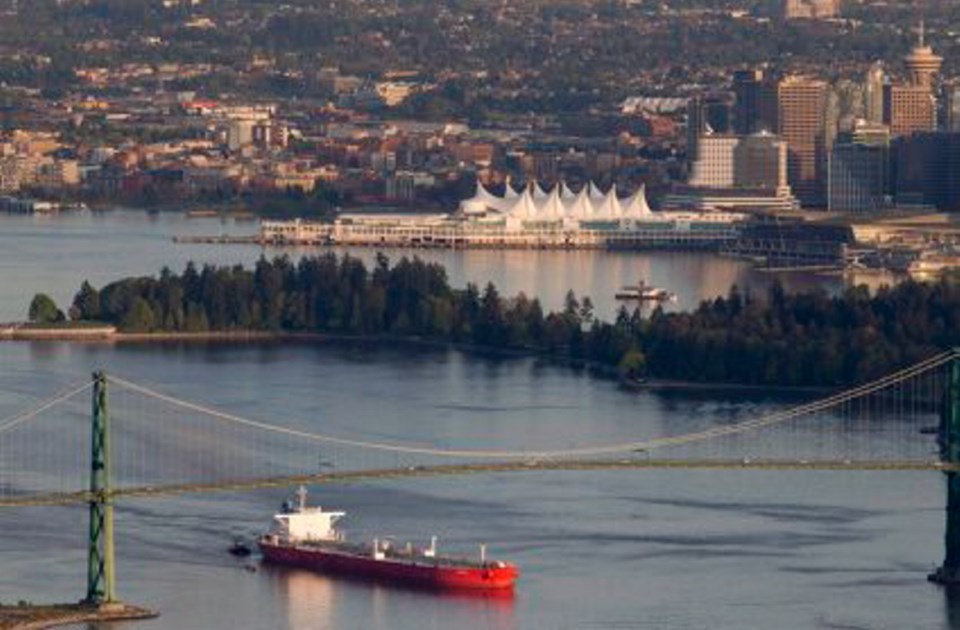Southern Vancouver Island is at risk from an oil spill, says a new scientific report on threats to the Salish Sea.
The 108-page report, to be released today by the Raincoast Conservation Foundation, also says various studies have shown Canada is ill prepared to deal with a large oil spill in southern B.C. waters.
Kinder Morgan, with its Trans Mountain application to pipe diluted bitumen from Fort McMurray to the B.C. coast, came in for special scrutiny and a call for caution in the report.
The company’s “conclusions are fraught with an unacceptable degree of uncertainty,” the report says.
Misty MacDuffee, a biologist with Raincoast Conservation, said the report was several years in the making. It draws on information from a wide variety of sources — economic, industrial, biological and cultural — to describe the state of the Salish Sea and the present dangers to it, she said.
The Salish Sea includes Puget Sound, the Strait of Georgia and Juan de Fuca Strait.
MacDuffee said the report is an attempt to demonstrate the extent of the damage being courted as industrial activity increases, whether from tankers, container ships or damage to the Fraser River estuary.
Expanding the Port of Vancouver could interfere with salmon returning to spawn in the Fraser River, while road works on land can interfere with the creeks, streams and other drainage features of the Fraser River estuary.
“Even in the absence of a spill, there is an inherent risk just from all the increase in shipping activity,” MacDuffee said. “Business as usual has consequences, but nobody is talking about them.”
She noted that the noise from ship engines and propellers can interfere with the ability of marine mammals that find their way with echolocation.
MacDuffee said industrial activity in other ports around the world has so degraded their surrounding waters that wildlife has almost vanished.
“If you see a bird, you get excited,” she said.
“We live in a place where seeing marine mammals is a given and we risk compromising that.”



